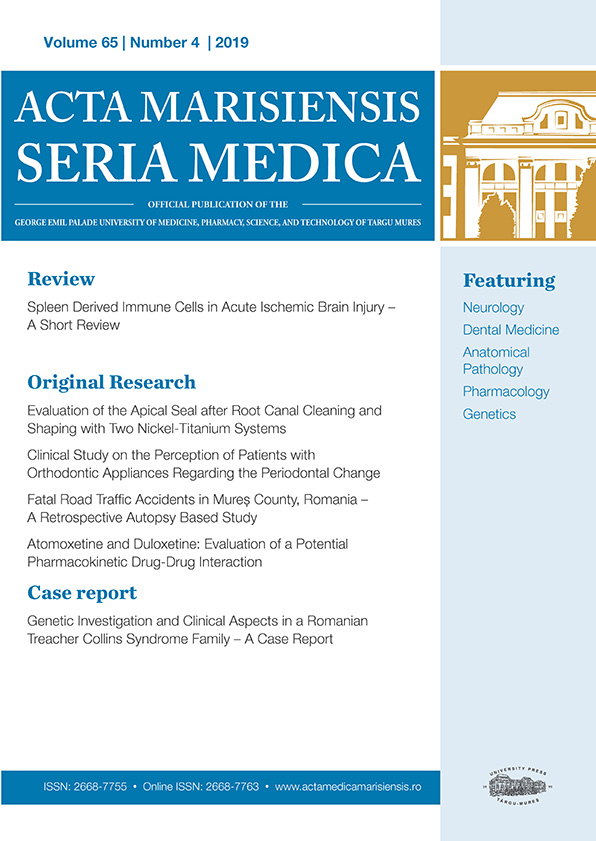Genitourinary bacterial infection: a cause of infertility in men? A cases series and short review of literature
DOI:
https://doi.org/10.2478/amma-2020-0024Keywords:
Enterococcus faecalis, spermatozoa, azoospermia, sperm count, male infertilityAbstract
Introduction
The role of bacterial infections on the onset and the development of male infertility is still highly controversial, as the clinical cases have different outcomes and the practitioners have no guidelines that will help them select the cases that will better benefit from antibiotic treatment.
Case presentation
Four case reports are presented in order to emphasize the possible clinical implications of genitourinary bacterial infections on male infertility. The first patient had two bacteria isolated from the semen culture, Escherichia coli, and then Enterococcus faecalis. The antibiotic treatment did not affect the quality of the spermatozoa. The second patient had a semen culture positive with E. faecalis. The treatment was successful: the bacteria were eradicated and the patient was able to conceive a baby. E. faecalis was also identified in the third and the fourth case. Both patients were able to conceive, despite the different clinical management strategies of the cases.
Conclusion
Bacterial prostatitis might play a role in male infertility, but the clinical cases are still highly unpredictable. Every case presents a different viewpoint and raises awareness of the complexity of the problem.
Downloads
Published
How to Cite
Issue
Section
License
Acta Marisiensis Seria Medica provides immediate open access to its content under the Creative Commons BY 4.0 license.









